Laura has always loved skiing. Now, since her WHV in New Zealand, she has made it her way of life…
pvtistes
Hi Laura, can you introduce yourself?
Hi, I’m Laura! I left France in 2019 to do a WHV in New Zealand which, because of (or rather thanks to) covid, will have lasted three years. I’m now 31 and working as a ski instructor in Japan.
I grew up and studied in Auvergne. I did a Masters in Education and Teaching of Physical and Sports Activities. After that, I did a year-long internship in a French immersion school in the United States. This experience gave me a taste for travel and the desire to explore other parts of the world. After this incredible year, I worked in a secondary school as a PE teacher in Paris. However, I soon realised that I wasn’t cut out for city life.
I love nature, the mountains and outdoor activities like mountain biking, climbing, hiking and skiing!
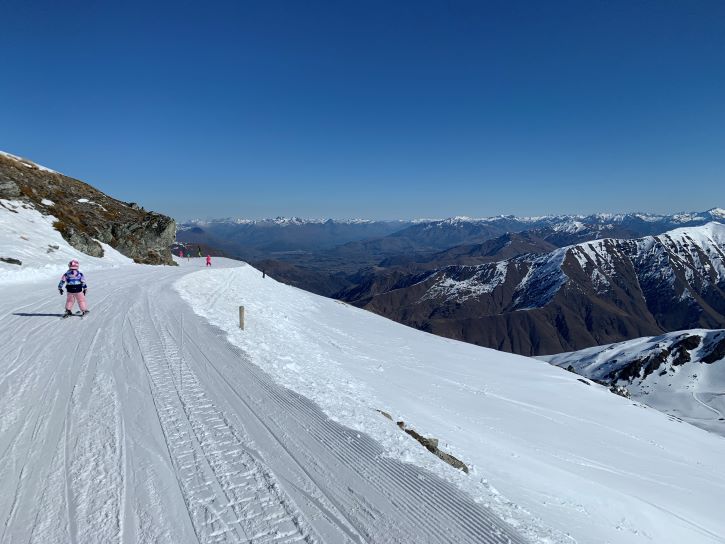
I grew up and studied in Auvergne. I did a Masters in Education and Teaching of Physical and Sports Activities. After that, I did a year-long internship in a French immersion school in the United States. This experience gave me a taste for travel and the desire to explore other parts of the world. After this incredible year, I worked in a secondary school as a PE teacher in Paris. However, I soon realised that I wasn’t cut out for city life.
I love nature, the mountains and outdoor activities like mountain biking, climbing, hiking and skiing!

pvtistes
You went on a WHV to New Zealand, what made you want to do that and why New Zealand?
After my experience in the United States, I wanted to go abroad again. I wanted to discover something new. My English improved slightly over there, but I was far from bilingual. I wanted to keep improving and be able to communicate in English.
New Zealand has always appealed to me because of its heavenly landscapes and mountains. So I did a bit of research (particularly on pvtistes.net), and I saw that a lot of people had tried the WHV adventure in New Zealand. It seemed easy to find a job, get around, meet people and so on.
Finally, when talking to a friend who also had this project, we decided to go together.
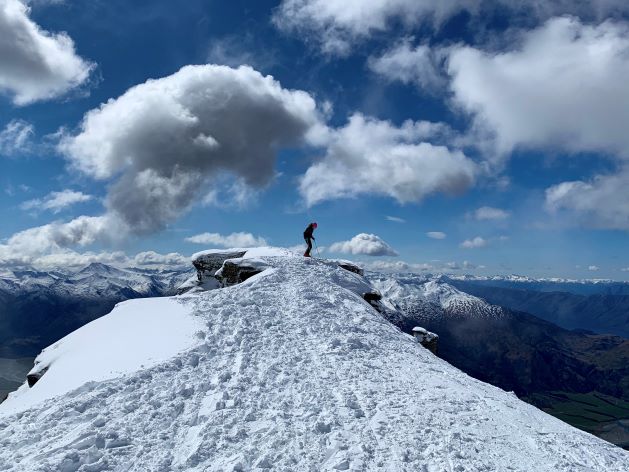
New Zealand has always appealed to me because of its heavenly landscapes and mountains. So I did a bit of research (particularly on pvtistes.net), and I saw that a lot of people had tried the WHV adventure in New Zealand. It seemed easy to find a job, get around, meet people and so on.
Finally, when talking to a friend who also had this project, we decided to go together.

pvtistes
What did you do during your New Zealand WHV?
My WHV in New Zealand lasted three years. I had completely different experiences, saw some splendid landscapes and met some extraordinary people.
This is just a summary of a great adventure in New Zealand.
I started with an au pair job around Auckland, the idea of living with a family reassured me. They helped me with all the administrative formalities on arrival. It was also a good way for me to improve my English and see the everyday life of the locals.
Then when my friend joined me, we bought a van and started alternating work and travel: waitress in a café and pancake seller in Auckland, worker in a vineyard in Cromwell, then mussel opener in Blenheim… only for a day, thanks to covid!
We found someone to host us during the lockdown, and then we continued our journey when we could. We did a lot of hiking and camping. My friend eventually returned to France and I chose to stay in New Zealand. I continued to alternate between work, volunteering and road trips, mainly on the South Island, in Wanaka. I was an au pair and waitress in Wanaka. I picked apples and packed kiwis in Motueka. I picked kiwis in Te Puke and cherries in Cromwell. I’ve done a lot of hiking and cycling in the South Island. I also worked as a ski instructor in the winter.
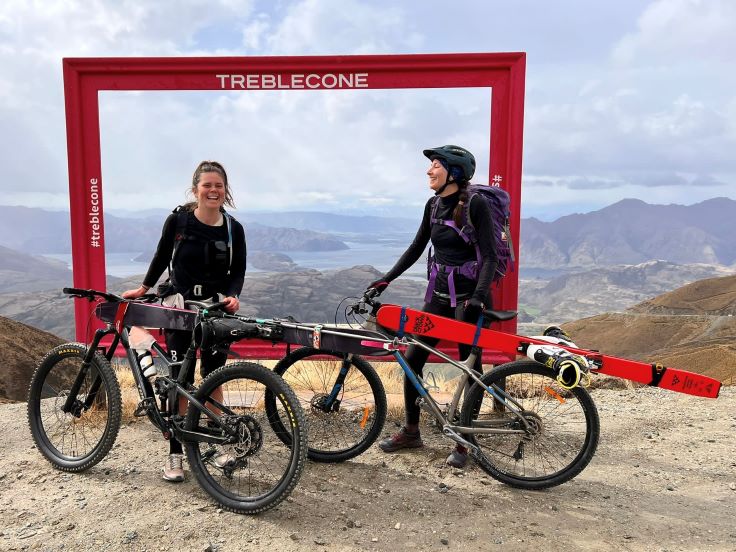
This is just a summary of a great adventure in New Zealand.
I started with an au pair job around Auckland, the idea of living with a family reassured me. They helped me with all the administrative formalities on arrival. It was also a good way for me to improve my English and see the everyday life of the locals.
Then when my friend joined me, we bought a van and started alternating work and travel: waitress in a café and pancake seller in Auckland, worker in a vineyard in Cromwell, then mussel opener in Blenheim… only for a day, thanks to covid!
We found someone to host us during the lockdown, and then we continued our journey when we could. We did a lot of hiking and camping. My friend eventually returned to France and I chose to stay in New Zealand. I continued to alternate between work, volunteering and road trips, mainly on the South Island, in Wanaka. I was an au pair and waitress in Wanaka. I picked apples and packed kiwis in Motueka. I picked kiwis in Te Puke and cherries in Cromwell. I’ve done a lot of hiking and cycling in the South Island. I also worked as a ski instructor in the winter.

pvtistes
Skiing is a big part of your life. Can you tell us about your experience in New Zealand?
Yes, I’ve always loved skiing. I grew up just 10 minutes from the Lioran ski resort in the Cantal. Ever since I was a little girl, my mum put me on skis and I spent most of my weekends and school holidays skiing with her, my brother and my cousin. I think my best childhood memories are of skiing! I never skied in a club or competed, just for fun.
My idea was to do a winter season in New Zealand. Unfortunately, my visa expired before the end of the season, so I didn’t manage to get a job in a station. During that first winter, I still went skiing a few times. Then I met a Frenchman who was doing his ski instructor training here in New Zealand. I did a bit of research and a little seed planted itself in my mind. A few months later, my visa was extended, I decided to stay and above all I decided to train as a ski instructor here in New Zealand. I saved money to pay for the course, which costs around NZ$6,000. The following winter I began this wonderful adventure which has now become my way of life. Since then, I’ve been travelling between the northern and southern hemispheres, working as a ski instructor all year round. This gave me the opportunity to get a work visa so that I could come back to New Zealand every winter.
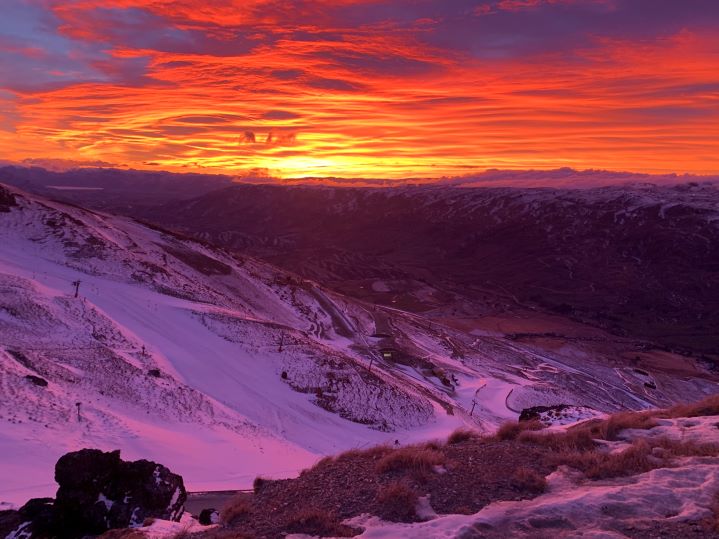
My idea was to do a winter season in New Zealand. Unfortunately, my visa expired before the end of the season, so I didn’t manage to get a job in a station. During that first winter, I still went skiing a few times. Then I met a Frenchman who was doing his ski instructor training here in New Zealand. I did a bit of research and a little seed planted itself in my mind. A few months later, my visa was extended, I decided to stay and above all I decided to train as a ski instructor here in New Zealand. I saved money to pay for the course, which costs around NZ$6,000. The following winter I began this wonderful adventure which has now become my way of life. Since then, I’ve been travelling between the northern and southern hemispheres, working as a ski instructor all year round. This gave me the opportunity to get a work visa so that I could come back to New Zealand every winter.

pvtistes
When is the ski season in New Zealand?
The ski season in New Zealand runs from late June to early October. July is often busy because it’s the New Zealand and Australian school holidays.
pvtistes
Is it expensive to ski in New Zealand?
Yes, it’s extremely expensive, unfortunately. I always thought skiing was an expensive activity in France, but it’s even worse in New Zealand.
At Cardrona, for example, a day pass costs NZ$160. It’s a good idea to buy your pass online in advance and to buy several days if you plan to go several times. A good idea is to work for the resort, so you get a free season pass.
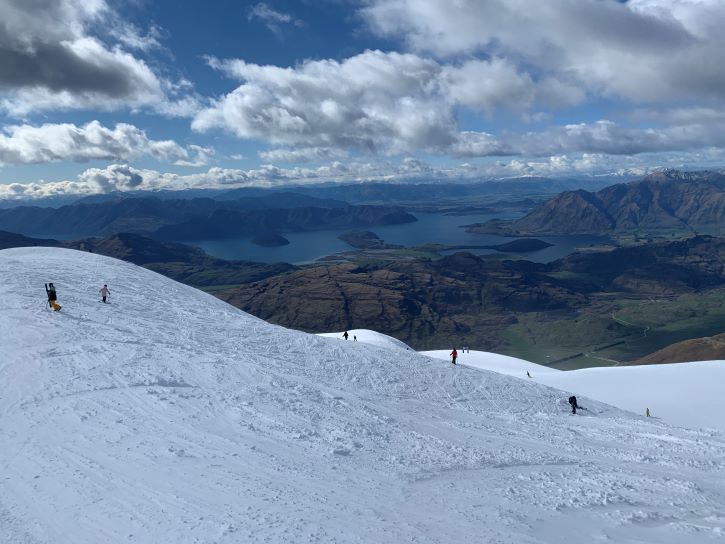
At Cardrona, for example, a day pass costs NZ$160. It’s a good idea to buy your pass online in advance and to buy several days if you plan to go several times. A good idea is to work for the resort, so you get a free season pass.

pvtistes
What ski resorts have you visited in New Zealand? Any preferences?
I’ve skied at Cardona, Treble Cone, The Remarkables, Coronet Peak and Lake Ohau.
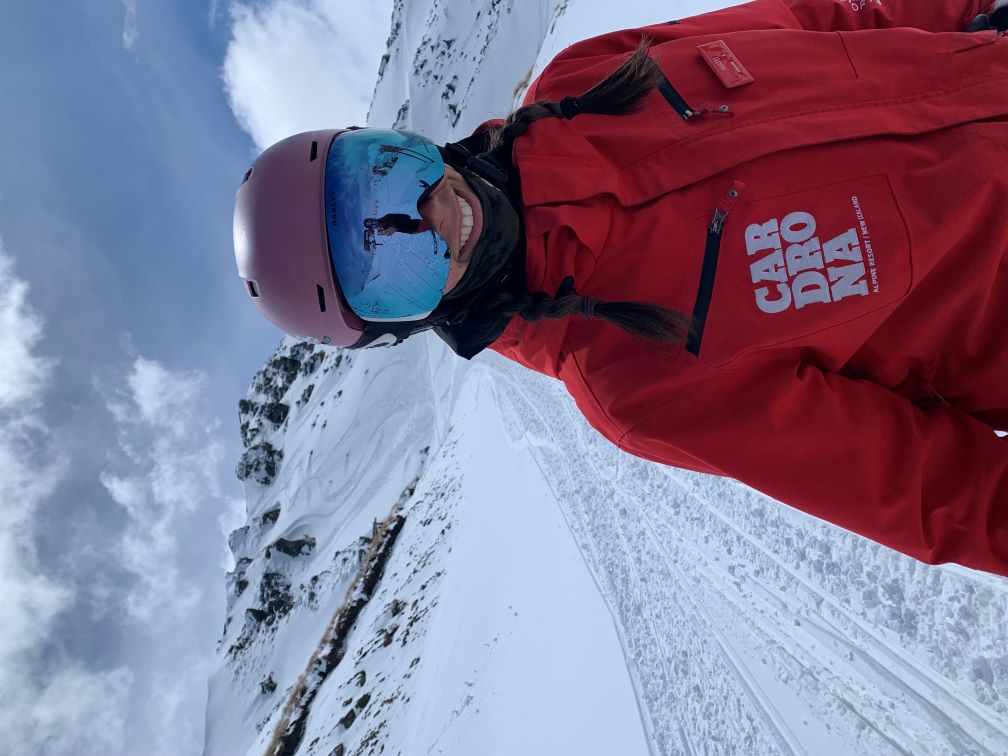
- My favorite is Lake Ohau. It’s a very small resort with just one chairlift (2-seater) and one drag lift. The views are incredible, the atmosphere is very family and local, it’s not overcrowded, there are a few groomed runs and plenty of off-piste options.
- Treble Cone has the best views and incredible terrain if you’re an experienced skier.
- Coronet Peak is great for night skiing.
- The Remarkables and Cardrona are family resorts, with something for everyone, and are ideal for learning to ski. If you’re a fan of freestyle skiing, this is also the place to be. Cardrona is famous for its park (boxes, jumps, half pipe).

pvtistes
What are the differences between the stations in France and in New Zealand?
New Zealand resorts are a lot smaller, nothing like the ski resorts of the French Alps. Snow is only found in the mountains, and very rarely in the valleys. Another big difference is that in New Zealand ski resorts are not villages. No one lives in the resort and there is no accommodation on site. You have to drive or take the bus every day: it’s a 20-50 minute drive on average. What’s more, the access roads are not sealed and sometimes require a 4×4 and the use of chains when it snows. Weather-wise, resorts in New Zealand often close because of the wind. There are no trees, so the slopes are quite exposed.
There are two kinds of ski resorts in New Zealand, the so-called “commercial” resorts and the Club Field resorts. The latter are private resorts run by families and a few volunteers, with one or two rope-type lifts, and a large part of the terrain is off-piste. The atmosphere is very friendly and there are few crowds.
Commercial” resorts basically consist of a large car park at the entrance, a building where ski passes are sold and equipment hired, a café, a cafeteria, a restaurant and that’s about it.
Ski resorts are private businesses. Whether you work on the lift passes, the lifts, the rentals, the cleaning, the restaurant or the ski school, you are employed by the resort.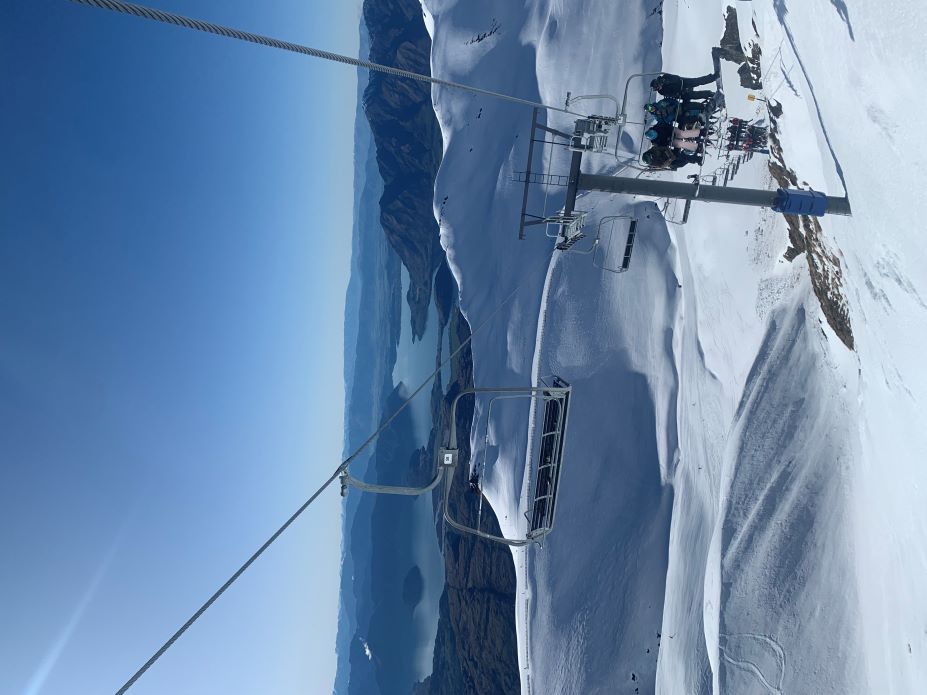
There are two kinds of ski resorts in New Zealand, the so-called “commercial” resorts and the Club Field resorts. The latter are private resorts run by families and a few volunteers, with one or two rope-type lifts, and a large part of the terrain is off-piste. The atmosphere is very friendly and there are few crowds.
Commercial” resorts basically consist of a large car park at the entrance, a building where ski passes are sold and equipment hired, a café, a cafeteria, a restaurant and that’s about it.
Ski resorts are private businesses. Whether you work on the lift passes, the lifts, the rentals, the cleaning, the restaurant or the ski school, you are employed by the resort.

pvtistes
You’ve decided to take your instructor’s licence! How did you go about it? What steps did you take?
Yes, indeed, I’ve passed my NZSIA (New Zealand Snowsports Instructors Alliance) levels 1 and 2.
I took a course called ITC (Instructor Training Center) at Cardrona. This practical and theoretical training took place mainly on snow, with a few indoor sessions. We were in several groups of 6 to 8 people with a coach. We worked on our own skiing performance, progression and the different stages of ski teaching, safety rules, group management and also video analysis.
The first 2 weeks of training prepared me for Level 1, which I passed. From then on, I started working part-time for the resort. At the same time, I went back to training for 4 weeks. Then I took my level 2, which I also passed. I really enjoyed being able to start working and putting into practice what I’d learnt during the training.
Level 1 is very basic. The exam includes a teaching test, with a group of pretending students who have to be taught a stage in the progression of skiing at beginner level. Your skiing ability is also assessed. There are no specific tests, just the advice given by the instructor.
Level 2 is more demanding. The on-ski exam includes demonstrations, a more advanced teaching test, video analysis and lesson planning.
The New Zealand system is completely different from the French system: much more accessible both technically and financially.
For those of you who don’t know, in France, if you’ve never competed before, it’s very difficult to get a ski instructor’s diploma. What’s more, it’s very expensive and very time-consuming (5 to 7 years on average).
In the New Zealand system, you can go through different levels that allow you to teach different skills.
The New Zealand diploma is recognised almost everywhere in the world, with the exception of France and Italy.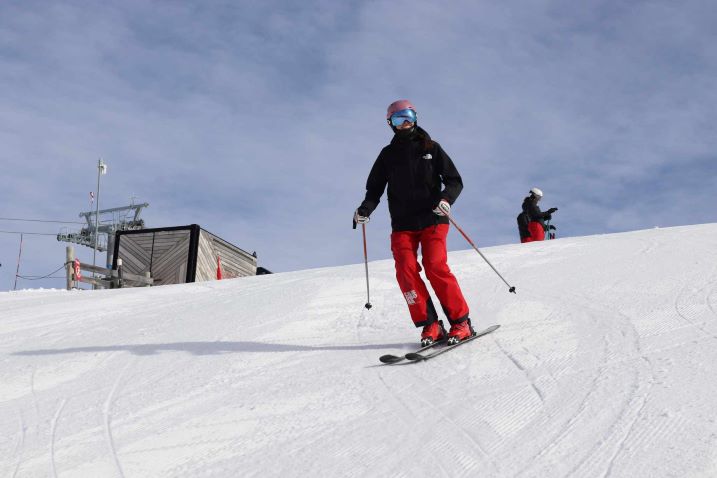
I took a course called ITC (Instructor Training Center) at Cardrona. This practical and theoretical training took place mainly on snow, with a few indoor sessions. We were in several groups of 6 to 8 people with a coach. We worked on our own skiing performance, progression and the different stages of ski teaching, safety rules, group management and also video analysis.
The first 2 weeks of training prepared me for Level 1, which I passed. From then on, I started working part-time for the resort. At the same time, I went back to training for 4 weeks. Then I took my level 2, which I also passed. I really enjoyed being able to start working and putting into practice what I’d learnt during the training.
Level 1 is very basic. The exam includes a teaching test, with a group of pretending students who have to be taught a stage in the progression of skiing at beginner level. Your skiing ability is also assessed. There are no specific tests, just the advice given by the instructor.
Level 2 is more demanding. The on-ski exam includes demonstrations, a more advanced teaching test, video analysis and lesson planning.
The New Zealand system is completely different from the French system: much more accessible both technically and financially.
For those of you who don’t know, in France, if you’ve never competed before, it’s very difficult to get a ski instructor’s diploma. What’s more, it’s very expensive and very time-consuming (5 to 7 years on average).
In the New Zealand system, you can go through different levels that allow you to teach different skills.
- Level 1: Beginner ;
- Level 2: Intermediate ;
- Level 3: Expert ;
- Trainers Cert: Instructor and trainer
The New Zealand diploma is recognised almost everywhere in the world, with the exception of France and Italy.

pvtistes
Can you share a difficult moment with us?
Honestly, I can’t think of a difficult moment. We had a few problems with our van no longer passing the WOF (technical inspection), and visa applications were always quite stressful.
pvtistes
And one of your best memories?
It’s hard, there are so many! Here is my top 3 haha!
In my first year, my best friends joined me for Christmas. We travelled and discovered the South Island together. A car, a campervan and a tent – what adventures, what hassles and what laughs! I’ll remember this trip for a very long time.
I loved travelling and living in the campervan. I remember one time my friend and I drove to the East Cape at night. The free camp was on the edge of the ocean, the weather was crazy, we didn’t sleep all night, I was afraid the van would tip over because it was so windy, or that a wave would sweep us away. Then in the morning, the conditions were simply perfect: no wind, not a cloud on the horizon, just the two of us in our van watching the sun rise!
Since we’re talking about skiing, the day I finished and passed my level 2 exam was a moment of great relief and joy! Tradition demands a jump into Lake Wanaka, which isn’t exactly warm in winter.
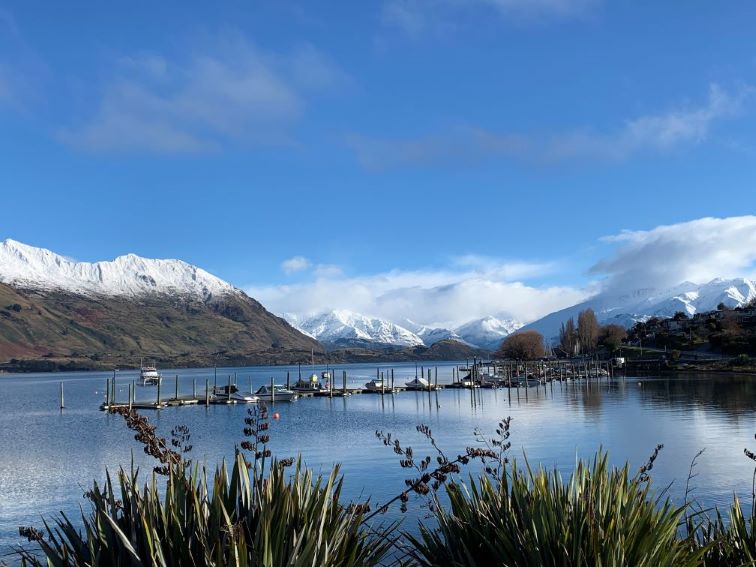
In my first year, my best friends joined me for Christmas. We travelled and discovered the South Island together. A car, a campervan and a tent – what adventures, what hassles and what laughs! I’ll remember this trip for a very long time.
I loved travelling and living in the campervan. I remember one time my friend and I drove to the East Cape at night. The free camp was on the edge of the ocean, the weather was crazy, we didn’t sleep all night, I was afraid the van would tip over because it was so windy, or that a wave would sweep us away. Then in the morning, the conditions were simply perfect: no wind, not a cloud on the horizon, just the two of us in our van watching the sun rise!
Since we’re talking about skiing, the day I finished and passed my level 2 exam was a moment of great relief and joy! Tradition demands a jump into Lake Wanaka, which isn’t exactly warm in winter.

pvtistes
Have you done any other ski season in New Zealand?
Yes, I worked for Cardrona for three winter seasons. The ski instructor diploma allows me to get a work visa every winter.
pvtistes
And elsewhere?
Yes, I worked at Panorama in Canada on a WH permit and I’m currently in Niseko in Japan on a work visa. This is my fourth winter in a row.
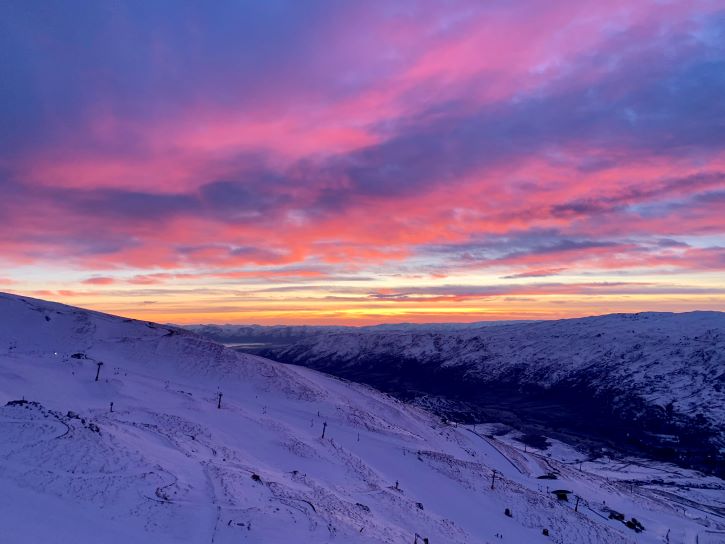

pvtistes
Do you think it’s easy to find a job during the ski season in New Zealand? How do you go about it?
I think it’s pretty easy to find a job for the winter season in New Zealand, as long as you start early enough and are open to different jobs.
Most resorts recruit during the summer for the winter, i.e. February/March to start in June.
Positions such as ski instructor are not easy to get because they require a diploma. It’s much easier to get a job as a waiter, receptionist, ticket agent, cleaner, lift attendant or car park attendant, for example.
Station websites are the place to apply and where you can find all the information you need. Most stations have an “Employment” section full of information: the different dates, the procedure, the benefits, etc.
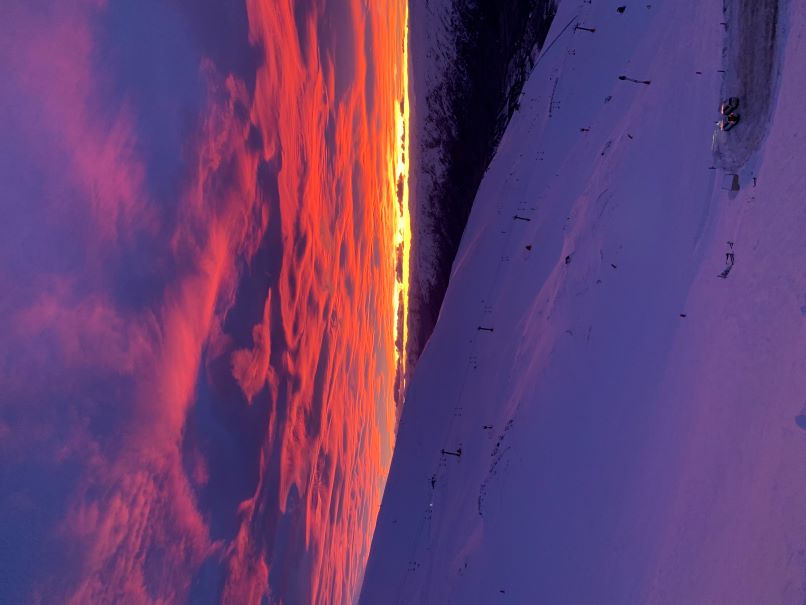
Most resorts recruit during the summer for the winter, i.e. February/March to start in June.
Positions such as ski instructor are not easy to get because they require a diploma. It’s much easier to get a job as a waiter, receptionist, ticket agent, cleaner, lift attendant or car park attendant, for example.
Station websites are the place to apply and where you can find all the information you need. Most stations have an “Employment” section full of information: the different dates, the procedure, the benefits, etc.

pvtistes
What advice would you give to other people who are hesitating to take the plunge?
If working in a ski resort is something you want to try, you need to plan ahead. You need to apply during the dates listed on the website, you need to have your visa valid until the end of the season and you need to start looking for accommodation as early as possible. Unfortunately, finding somewhere to live is often more difficult than getting the job (especially in Wanaka and Queenstown).
Apart from that, go for it! You’ve got nothing to lose. Whether you’re an experienced skier or a complete beginner, working for a ski resort will give you a free season pass, lessons and lots of other benefits! It’s a chance to learn, to try something new, to find a new passion or simply to experience skiing in July ahah! It’s a great way to meet new people, the teams are very international, so you’ll meet people from all over the world.
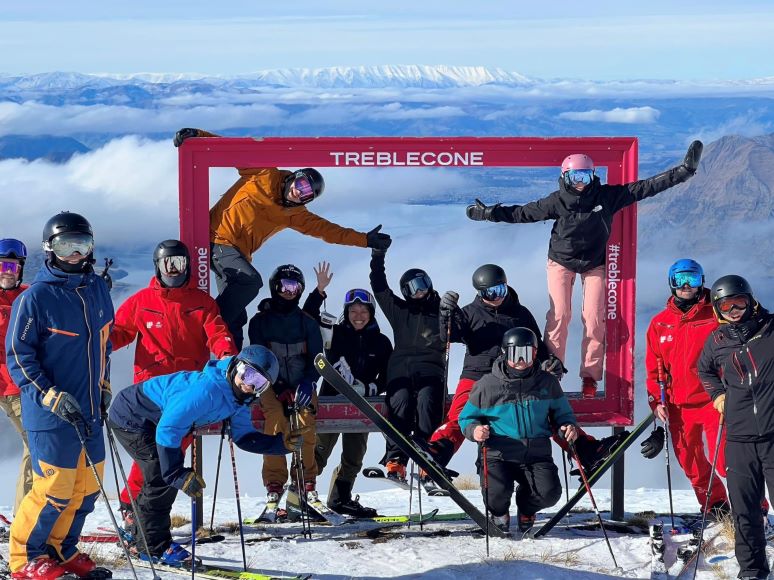
Apart from that, go for it! You’ve got nothing to lose. Whether you’re an experienced skier or a complete beginner, working for a ski resort will give you a free season pass, lessons and lots of other benefits! It’s a chance to learn, to try something new, to find a new passion or simply to experience skiing in July ahah! It’s a great way to meet new people, the teams are very international, so you’ll meet people from all over the world.

pvtistes
And now, what are your projects?
As far as skiing is concerned, I’d like to validate my level 3 in the near future. This would enable me to teach a wider audience, be better paid and have even easier access to work visas. For the record, in New Zealand I earned around NZ$29/hour and worked around 30 hours a week. In Canada, my salary was CA$19/hour and I worked about 25 hours a week.
For next season, I’m hesitating between going back to New Zealand for the winter or spending the summer in Europe. After 4 winters in a row, even though I love snow and skiing, I have to admit that I miss the heat and summer a bit.
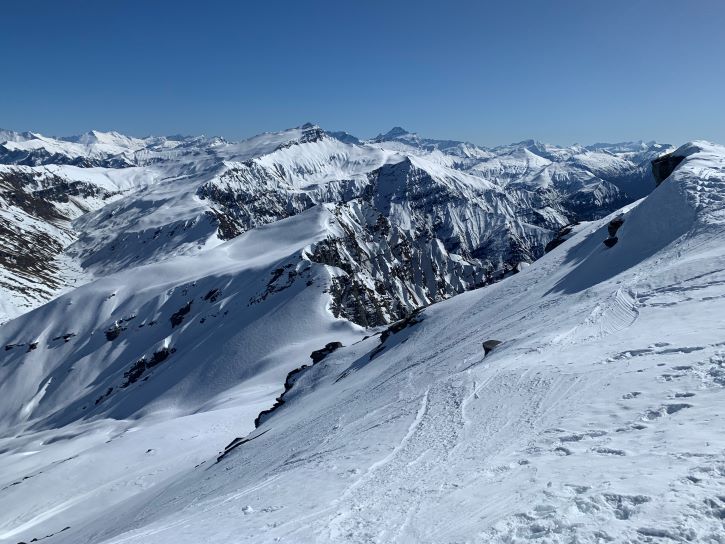
For next season, I’m hesitating between going back to New Zealand for the winter or spending the summer in Europe. After 4 winters in a row, even though I love snow and skiing, I have to admit that I miss the heat and summer a bit.

















 Français
Français English
English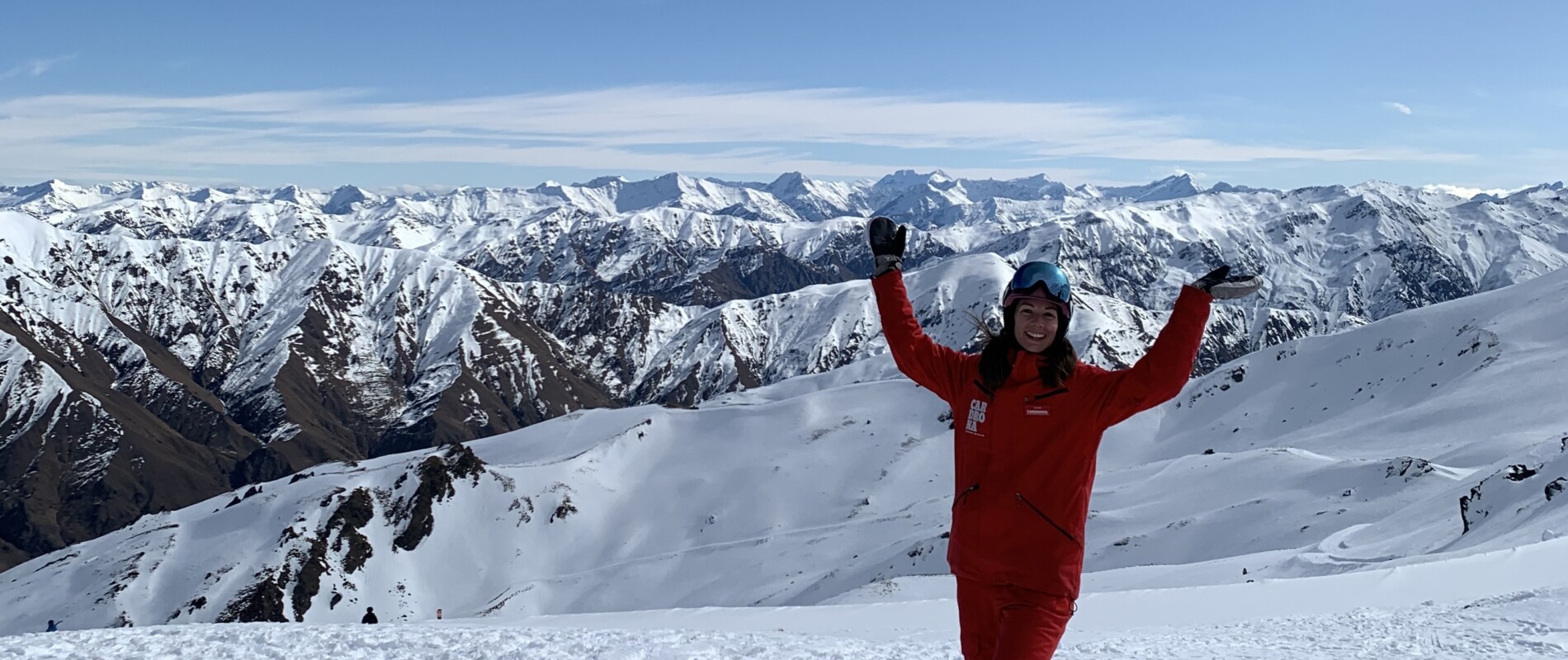

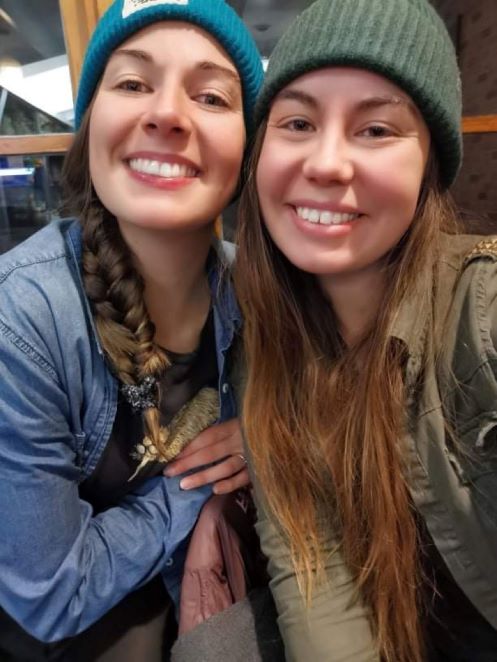
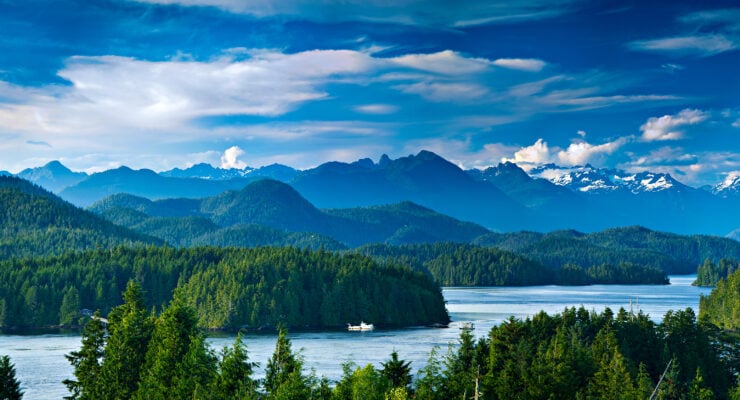
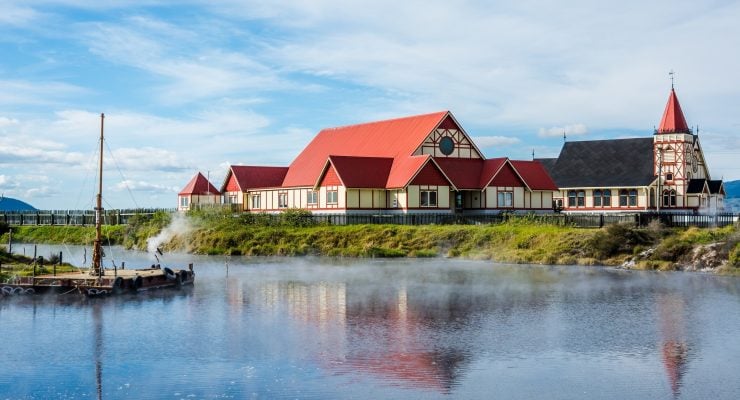
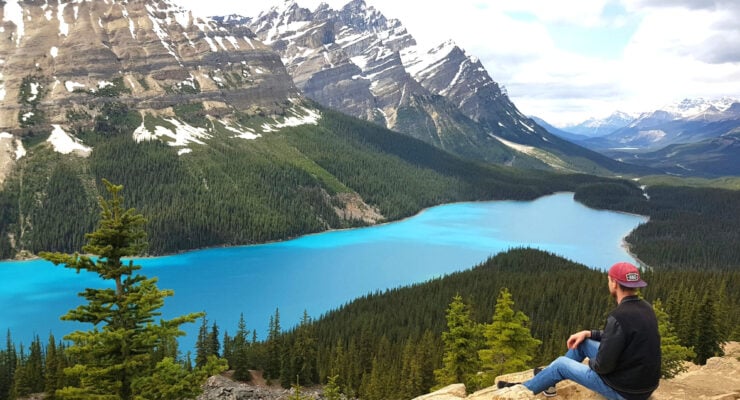

0 comments
{{like.username}}
Loading...
Load more